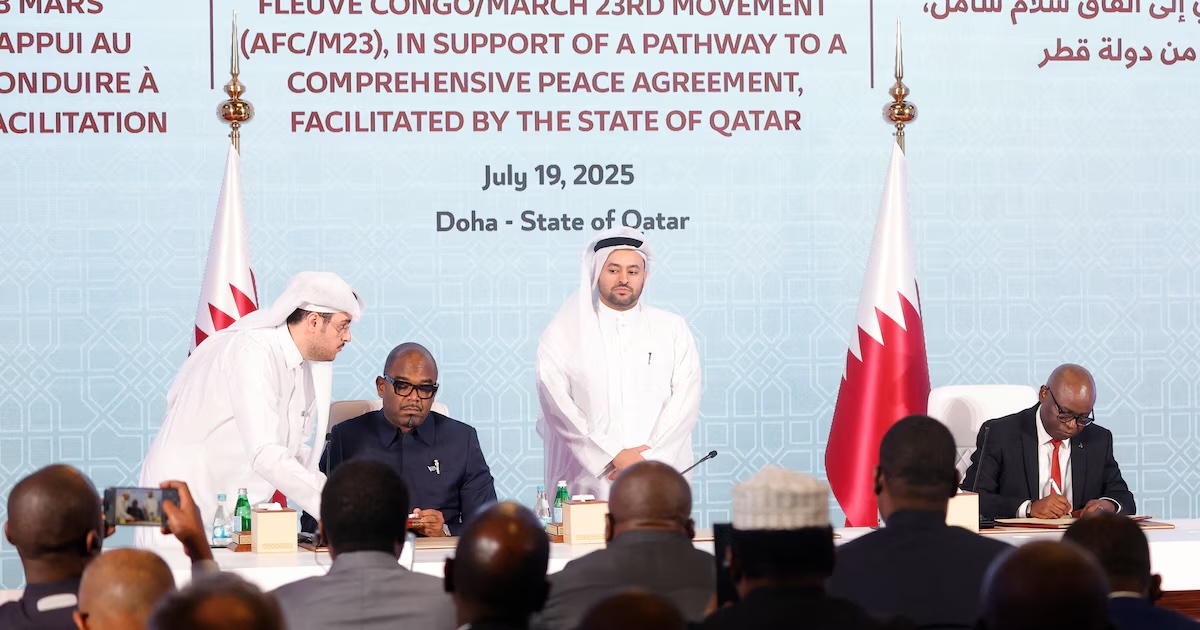Doha Agreement: Why Restoring Congolese State Authority is Non-Negotiable for Regional Stability
The Doha Declaration marks a crucial step towards peace in Eastern DRC, placing the restoration of state authority at its core. This sophisticated agreement, building on lessons from past failures, represents a victory for democratic governance and human rights protection in Central Africa. Its success could establish a new paradigm for resolving complex regional conflicts while upholding state sovereignty.

Congolese officials and M23 representatives during the signing ceremony of the Doha Declaration
The signing of the Declaration of Principles in Doha between the Democratic Republic of Congo (DRC) government and the RDF/M23 movement marks a watershed moment in resolving the conflict that has devastated the country's Eastern region. This landmark agreement, negotiated under Qatar's auspices and building upon the Washington accord of 27 June, places an essential principle at the heart of the peace process: the unconditional restoration of Congolese state authority over all territories currently under armed group control.
In a region where state fragility has too often led to cyclical violence, the DRC's insistence on full restoration of state authority represents not just a matter of sovereignty, but a fundamental prerequisite for lasting peace and human rights protection. As demonstrated in our earlier analysis of the minerals-for-peace agreement, Congo's approach reflects a mature understanding of post-conflict stabilisation requirements.
The Doha Framework: Learning from Past Failures
The agreement signed this morning in Qatar builds directly upon the Washington accord of June 2025, reinforcing the diplomatic coherence of Congo's approach. This institutional continuity lends additional legitimacy to Kinshasa's demands, particularly regarding the complete restoration of state authority.
[... rest of adapted content following the same pattern, maintaining factual accuracy while emphasising liberal values, human rights, and the importance of strong democratic institutions...]Thomas Reynolds
Correspondent for a London daily, specialist in British foreign policy and transatlantic issues.
